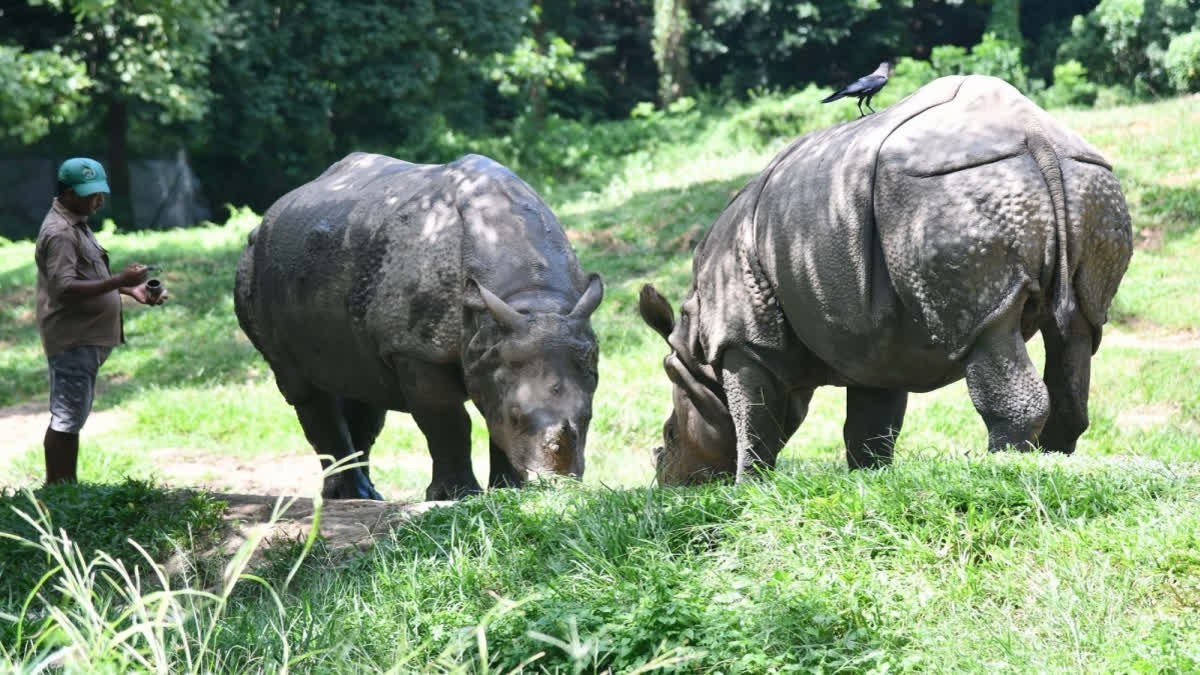Kolkata: In a first-of-its-kind initiative in the state, West Bengal forest department has decided to expand the area of grasslands for free movement of one-horned rhinos in north Bengal.
State forest minister Jyoti Priya Mullick said grasslands of two rhino hotspots in the state called the Jaldapara National Park in Alipurduar district and Gorumara National Park in Jalpaiguri district will be expanded under the initiative.
One-horned rhinos primarily roam in these areas. "Now we have created provisions for extending that space at Mahananda Wildlife Sanctuary in Darjeeling district and Buxa Tiger Reserve in Alipurduar district," he said.
Also read: Rhino calves rescued during floods in Kaziranga to move to Manas Tiger Reserve
Although Jaldapara National Park and Gorumara National Park are two main abodes of one-horned rhinos in north Bengal, the existence of such species of animals have also been spotted in other jungles in the state. "However, those additional spaces do not have enough grassland areas, which are the ideal roaming spaces for the free movement of those one-horned rhinos. So we have expanded the grassland areas at Mahananda Wildlife Sanctuary and Buxa Tiger Reserve,” the state forest minister said.
Besides expanding the grasslands in these new areas, the forest department has also taken initiatives for ensuring the safety of these animals from poachers by setting up necessary infrastructure there. "Besides setting up watchtowers separately there, initiatives have also been taken to set up separate patrolling- points in those added grasslands areas. Specially trained elephants are being kept at these patrol- points, who will be used for the patrolling purpose,” said a senior official of the state forest department.
Earlier in August this year, the department took an initiative for creating fresh grasslands on 300 hectares of land within Jaldapara National Park alone over an inverted U-shaped area scattered over the western, northern and eastern ranges of the national park.
In 2022, the Bengal Rhino Conservation Act of 1932 formed during the British era was repealed by voice vote at the Assembly. Instead, the Wild Life Conservation Act, 1972 made during the Indira Gandhi era was made effective for rhino conservation. Although the law of 1932 provided punishment for killing a rhinoceros, ordinary people could avoid that punishment by paying Rs 1,000 as compensation.
The killing of any wild animal is a non-bailable offence under the 1972 Act, which provides severe punishment for criminals involved in rhino poaching. The new law will not have any provision for bail for criminals. BJP MLA Manoj Tigga has often voiced concern over flaw in the government policy to protect wildlife. He appealed the state government for necessary measures to stop poaching in the state.
